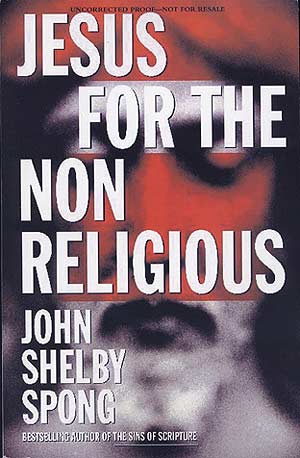by Cris D. Putnam
 This essay will address the ways the culture is challenging and rejecting God’s revealed understanding of moral right and wrong and suggest some useful counter arguments. Because God has revealed his moral standards in the pages of scripture, these are necessarily challenges to biblical morality. This suggests two principle areas of attack: 1) the Bible and 2) the existence of objective morality. The atheist denies biblical morality by definition but these assaults come from liberal Christians and other religions as well. While they are often used together, this essay will examine each line of attack, the way it is used and its problems. The denial of Gods’ revealed moral standards entails suppressing the truth and inevitably leads to logical or moral inconsistency (Rom 1:18-21).
This essay will address the ways the culture is challenging and rejecting God’s revealed understanding of moral right and wrong and suggest some useful counter arguments. Because God has revealed his moral standards in the pages of scripture, these are necessarily challenges to biblical morality. This suggests two principle areas of attack: 1) the Bible and 2) the existence of objective morality. The atheist denies biblical morality by definition but these assaults come from liberal Christians and other religions as well. While they are often used together, this essay will examine each line of attack, the way it is used and its problems. The denial of Gods’ revealed moral standards entails suppressing the truth and inevitably leads to logical or moral inconsistency (Rom 1:18-21).
The first challenge to biblical morality entails attacking the Bible. This assault assumes various forms and comes from liberal Christianity as well as from secularists. The most dangerous is the former because it often persuades new believers and confuses less knowledgeable conservatives. Challenges from scholars like Bart Ehrman focus on the text and argue that we cannot trust it to be accurate. If we do not have God’s words, we do not have his morals. Others argue that the Bible is culturally bound and not applicable to modern culture. This spans the gap from the egalitarians who seek to usurp biblical gender roles in order to promote female clergy to radical homosexual revisionists indulging in the most incredible eisegesis to assert that the Bible is silent concerning homosexuality. As noted by Francis Schaffer, the slippery slope argument validly applies because the former very often leads to the latter.[1]
Other nominal Christians dismiss the Bible as the deeply flawed product of an ancient patriarchal culture. Radical theologian John Shelby Spong epitomizes the wholesale dismissal of biblical morality by suggesting it promotes slavery and demeans women:
The Bible has been used for centuries by Christians as a weapon of control. To read it literally is to believe in a three-tiered universe, to condone slavery, to treat women as inferior creatures, to believe that sickness is caused by God’s punishment and that mental disease and epilepsy are caused by demonic possession. When someone tells me that they believe the Bible is the ‘literal and inerrant word of God,’ I always ask, ‘Have you ever read it?’[2]
This exemplifies a wholesale compromise with culture. Although he was an Episcopal Bishop it is hard to call him a Christian in any significant way. Truthfully, he is not that far from the atheists.
Atheists deny God’s morality by denying He exists. Still, they attack the Bible to support their position. Often this results in inconsistency. For instance, on one hand they will dismiss the historical narrative of the Bible as a Jewish legend while on the other hand they will use Joshua’s conquest as an example of genocide. In so doing they claim that if he does exist, God is a moral monster. Richard Dawkins has infamously argued:
The God of the Old Testament is arguably the most unpleasant character in all fiction: jealous and proud of it; a petty, unjust, unforgiving control-freak; a vindictive, bloodthirsty ethnic cleanser; a misogynistic, homophobic, racist, infanticidal, genocidal, filicidal, pestilential, megalomaniacal, sadomasochistic, capriciously malevolent bully.[3]
In like fashion, Dawkins’ cohort the deceased anti-theist Christopher Hitchens not only dismissed biblical morality but also leveled moral judgment against it in his best seller God is Not Great: How Religion Poisons Everything. The atheist not only rejects God’s moral standards he brands them evil. However, conceding the existence of evil falsifies the second line of attack. If evil exists objectively, then moral relativism has a problem.
The second major way biblical morals are rejected is by denying the existence of objective morality. Known as moral relativism, it rules out the possibility of a transcendent moral law revealed by God. On this view, morality is culturally defined and relative to a particular group. Thus, the majority decides what is morally virtuous and what is not. In effect, it amounts to “the mob rules.” Although it is immensely popular with secular humanists and liberals, history demonstrates that even its staunchest promoters cannot consistently live according to its tenets.
According to moral relativism, it is immoral for one group to judge another by its own standards. In order to discourage the practice, relativists apply discouraging labels like ethnocentrism. Similarly, the term religiocentrism denotes the conviction that one’s religion is superior to others. Often these are paralleled to racism for emotional effect. They oppose biblical morality as a form of cultural imperialism by asserting that its objective moral truth claims are wrongful impositions. Although this absolute is smuggled in the back door, they ignore the inconsistency. Accordingly, they really do not live by their stated beliefs.
Relativists are only relativists when it suits them. From their stated beliefs, it follows that if the majority decides genocide or racism benefits the group then it should be deemed morally virtuous. Apart from an objective standard, there is no warrant to criticize atrocities like the holocaust. Yet, the Allies appealed to an objective standard and went to war against the Nazis. Furthermore, it turns great moral reformers like Martin Luther King into immoral rabble-rousers. King also appealed to a transcendent moral standard against the prevailing tide of the culture. A consistent relativist would have to reject his claims and support the racist consensus. Most liberals idealize King so this is a very effective defeater.
Extreme examples have a way of clarifying the issue. One might ask the relativist “Name a circumstance when killing children for fun is morally virtuous?” If they agree there is not one, then they have conceded a moral absolute. This demonstrates that given relativism there are no real moral values, merely opinions, like tastes in ice cream. Given relativism, one cannot consistently say “racism is wrong” or “discriminating against homosexuals is wrong.” They can only say, “I don’t like it.” Relativism actually destroys morals. Moral relativism is an incoherent concept that all rational people should abandon. In truth, it amounts to moral nihilism.
The culture denies biblical moral standards by attacking the Bible or the notion that moral standards are objective. They might deny God exists, that he has spoken through scripture, or that scripture is reliably preserved. They might also question the existence of objective morality. In so doing, they run the risk of embracing moral anarchy. These points lead to the conclusion that the Apostle Paul was right in connecting the suppression of truth in unrighteousness with increasingly futile thinking and a seared conscience.
Check out my articles at BeforeIt’sNews here.
[1] Francis A. Schaeffer, The Great Evangelical Disaster (Westchester, Ill.: Crossway, 1984), 136.
[2] John Shelby Spong, “Q&A on the Bible as a weapon of control,” cited at http://www.religioustolerance.org/imm_bibl.htm (accessed October 23, 2013).
[3] Richard Dawkins, The God Delusion, (Great Britain: Bantam Press, 2006), 31,





